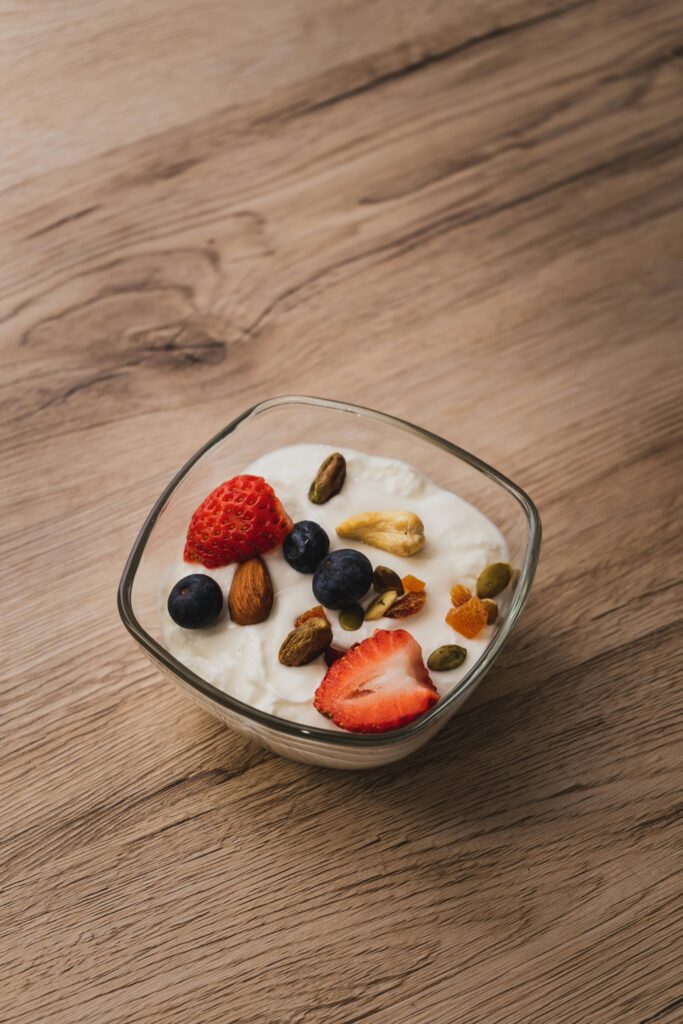Probiotics 101: Benefits, Types, and How They Improve Gut Health
Probiotics are tiny living things, like “good” bacteria, that help your stomach and intestines stay healthy. They fight bad bacteria, improve digestion, and can even boost your immune system.
You can find probiotics in foods like yogurt, kefir, sauerkraut, and pickles, or as supplements. Some people take them to fix tummy troubles like bloating or diarrhea.
While they’re usually safe, they might cause mild gas or discomfort at first. But for most people, they’re a great way to keep your gut happy!
What foods are suitable for this?

Here’s a simple list of probiotic-rich foods that are great for gut health, explained in an easy-to-understand way for younger readers:
🥛 Dairy & Drinks
1. Yogurt – Made from fermented milk with live bacteria (like Lactobacillus). Choose ones with “live & active cultures” and low sugar .
2. Kefir – A tangy, drinkable yogurt with even more probiotics. Works for some lactose-intolerant people too .
🥬 Fermented Veggies
1. Sauerkraut – Fermented cabbage (pick the refrigerated kind for live bacteria) .
2. Kimchi – Spicy Korean fermented veggies (like cabbage or radishes). Packed with Lactobacillus .
3. Pickles – Only the ones fermented in saltwater (not vinegar!) .
🌱 Plant-Based Options
1. Tempeh – Fermented soy cake, high in protein and probiotics .
2. Miso – Salty Japanese paste (used in soups). Made from fermented soybeans .
3. Kombucha – Fizzy fermented tea (watch for added sugar) .
🧀 Other Surprises
1. Some Cheeses – Like cheddar, mozzarella, or gouda (look for “live cultures”) .
2. Natto – Sticky fermented soybeans (popular in Japan) .
Side effects

Probiotics are usually safe for most people, but some may experience mild side effects, especially when first starting. Here’s what to watch for:
Common Side Effects
1. Gas & Bloating – Your gut is adjusting to new bacteria (usually goes away in a few days).
2. Upset Stomach – Mild diarrhea or discomfort can happen temporarily.
3. Constipation – Rare, but some people feel “blocked” at first.
Rare but Serious (Stop Using If…)
●Allergic Reaction (rash, itching, swelling) – Check labels for dairy/soy if allergic.
● Infections – Only a risk for very weak immune systems (like serious illnesses).
Tip: Start with small amounts (like ½ serving of yogurt or 1 probiotic pill daily) to let your body adjust.
benefits of probiotics?
Probiotics are like tiny superheroes for your gut and overall health. Here’s how they help:
1. Gut Health Boost
● Balance good & bad bacteria – Keeps your digestive system happy.
● Help with tummy troubles – Can ease diarrhea, bloating, and constipation.
2. Immune System Support
● Fight off germs – Probiotics help your body defend against infections.
● May reduce colds – Some studies show they help you get sick less often.
3. Mood & Brain Health
● “Gut-brain connection” – A healthy gut may lower stress and improve mood.
4. Other Cool Perks
● Healthier skin – May help with acne or eczema.
● Better nutrient absorption – Helps your body get more from food.
What are the treatments?
Probiotics aren’t medicine, but they can help treat or prevent certain health issues by balancing your gut bacteria. Here’s how they’re used:
1. Digestive Problems
● Diarrhea (especially after antibiotics) – Probiotics like Lactobacillus and Saccharomyces boulardii can help.
● Constipation – Some strains (like Bifidobacterium) may keep things moving.
● Bloating & IBS – Can reduce gas and discomfort in irritable bowel syndrome (IBS).
2. Infections & Immunity
● Yeast infections (like thrush or vaginal infections) – Lactobacillus strains may help prevent them.
● UTIs (urinary infections) – Some probiotics lower the risk.
● Colds & flu – May shorten sickness by boosting immunity.
3. Skin & Allergies
● Eczema – Certain probiotics (like Lactobacillus rhamnosus) might reduce flare-ups in kids.
● Allergies – Early probiotic use may lower allergy risks (still being studied).
4. Mental Health (Gut-Brain Connection)
● Anxiety & depression – Some strains (Lactobacillus helveticus) might help mood (research is ongoing).



